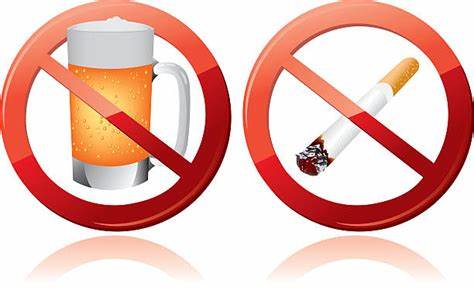Cancer is one of the most devastating diseases that can impact anyone, yet many cases of cancer are preventable through everyday lifestyle choices. The key to lowering the risk of developing cancer lies in understanding how certain habits and behaviors affect the body. While genetics play a significant role in some cancers, environmental factors and lifestyle choices often have a more immediate and direct impact. This article will explore the lifestyle changes you can make to significantly reduce your cancer risk, based on scientific research and expert recommendations.
Maintain a Healthy Diet
One of the most effective ways to prevent cancer is by making smart dietary choices. A well-balanced diet rich in fruits, vegetables, and whole grains can provide your body with essential vitamins, minerals, and antioxidants that combat oxidative stress and inflammation—two factors that contribute to cancer development. Research shows that diets high in fiber, antioxidants, and healthy fats can reduce cancer risk.

Fruits like berries, citrus, and apples contain antioxidants that protect your cells from damage. Cruciferous vegetables such as broccoli, kale, and Brussels sprouts are known for their cancer-fighting properties, thanks to compounds that aid in detoxification and promote healthy cell function. By prioritizing a plant-based diet, you can significantly lower your risk of various cancers, including those affecting the digestive system and breast tissue.
In addition to incorporating cancer-fighting foods, it’s equally important to limit the consumption of processed meats, sugary snacks, and high-fat foods. Studies have shown that diets high in processed foods, red meats, and refined sugars can increase cancer risk, particularly for colorectal and pancreatic cancers. Choosing lean meats, plant-based protein sources, and whole grains is an excellent way to ensure you are giving your body the nutrition it needs without putting it at risk.
Engage in Regular Physical Activity
Exercise is another powerful tool in cancer prevention. Staying physically active can help maintain a healthy weight, reduce inflammation, and regulate hormones—all factors that contribute to a reduced cancer risk. Studies have shown that regular physical activity lowers the chances of developing cancers of the colon, breast, and endometrium. Even moderate-intensity exercise like walking, cycling, or swimming can make a significant difference.
Exercising not only helps in weight management but also improves the body’s immune function. It boosts circulation and promotes better oxygen flow to your cells, which can improve overall health. Additionally, physical activity helps to regulate blood sugar levels, reducing the likelihood of developing certain cancers linked to obesity and metabolic issues.
The American Cancer Society recommends that adults engage in at least 150 minutes of moderate-intensity aerobic activity or 75 minutes of vigorous-intensity activity each week. Incorporating strength training exercises at least twice a week is also beneficial. Whether it’s a brisk walk, a yoga session, or a high-intensity workout, moving your body regularly is crucial in cancer prevention.
Avoid Tobacco and Limit Alcohol Consumption
Tobacco use is the leading cause of preventable cancer, particularly lung, throat, and mouth cancers. Smoking introduces carcinogens into the body, which can damage healthy cells and lead to the development of tumors. The risk is not limited to smokers—secondhand smoke can also increase the risk of cancer for those exposed to it regularly. To reduce the risk of cancer, quitting smoking is the most effective step you can take.

In addition to smoking, alcohol consumption has been linked to an increased risk of several cancers, including liver, breast, and esophageal cancers. The more alcohol a person consumes, the higher their risk. Alcohol can damage the DNA in cells and alter the way the body metabolizes certain substances, both of which can lead to cancer. While the occasional drink may not pose a significant risk, it’s advisable to limit alcohol intake to reduce cancer risk. The American Cancer Society recommends no more than one drink per day for women and two drinks per day for men.
If you are looking to reduce your cancer risk, quitting smoking and limiting alcohol consumption are two crucial lifestyle changes you can make.
Protect Your Skin from the Sun
Skin cancer is one of the most common types of cancer, and the majority of cases are linked to excessive sun exposure. Ultraviolet (UV) radiation from the sun can damage skin cells and increase the risk of melanoma, the deadliest form of skin cancer. The most effective way to prevent skin cancer is by protecting your skin from harmful UV rays.
It’s important to wear sunscreen daily, even when it’s cloudy or during winter months. Choose a broad-spectrum sunscreen with an SPF of 30 or higher. Apply sunscreen generously and reapply every two hours, or more often if swimming or sweating. Additionally, wearing protective clothing, such as hats, sunglasses, and long-sleeved shirts, can help shield your skin from UV damage.
Avoid tanning beds and seek shade during peak sunlight hours, typically between 10 a.m. and 4 p.m. Early detection of skin changes, such as new moles or irregular growths, is crucial for successful treatment. Regularly checking your skin for abnormalities can help you catch potential skin cancer early.
Get Screened Regularly
Preventative screenings can be a game-changer in detecting cancer early, when it is most treatable. Regular screenings for breast, cervical, colorectal, and prostate cancers can detect precancerous changes or early-stage cancer before symptoms appear. Early detection increases the chances of successful treatment and improves overall survival rates.
Women should begin regular mammograms at age 40, while Pap smears for cervical cancer should start at age 21 and continue every three years. Men and women over 50 should undergo colorectal cancer screening, either through a colonoscopy or stool-based test. Speak to your doctor about the appropriate screenings for your age and risk factors.
By getting screened regularly, you can monitor your health and catch any potential issues early, which can significantly improve the outcome if cancer is detected.
Manage Stress Effectively
Chronic stress has long been associated with a variety of health problems, including cancer. While stress itself doesn’t directly cause cancer, it can contribute to behaviors that increase the risk, such as poor eating habits, lack of exercise, smoking, or excessive alcohol consumption. Prolonged stress can also weaken the immune system, making it harder for the body to fight off cancerous cells.
Taking time to manage stress is essential for overall well-being. Practices such as meditation, yoga, mindfulness, and deep breathing can help reduce stress levels and improve mental health. Additionally, ensuring a work-life balance and spending time with loved ones can help support emotional well-being.
By incorporating stress management techniques into your daily routine, you can improve your quality of life and reduce your cancer risk.
Get Enough Sleep
Sleep plays a crucial role in the body’s ability to repair itself and maintain healthy cellular function. Inadequate sleep has been linked to various health issues, including an increased risk of cancer. Research suggests that chronic sleep deprivation can disrupt the body’s hormonal balance and immune function, creating an environment conducive to cancer growth.

Adults should aim for 7 to 9 hours of sleep each night to allow the body to recover and function optimally. Good sleep hygiene, such as establishing a consistent sleep schedule, avoiding screen time before bed, and creating a restful environment, can help improve sleep quality. Prioritize sleep as part of your cancer prevention strategy.
Conclusion
Cancer prevention is possible through a combination of healthy lifestyle choices. Eating a balanced diet, staying physically active, avoiding tobacco and excessive alcohol, protecting your skin, getting screened regularly, managing stress, and prioritizing sleep are all crucial steps in reducing your cancer risk. While some factors are beyond our control, the power to protect ourselves from cancer largely lies in the decisions we make every day. By making these changes, you can live a healthier life and reduce your risk of developing cancer in the future.

Leave a Reply